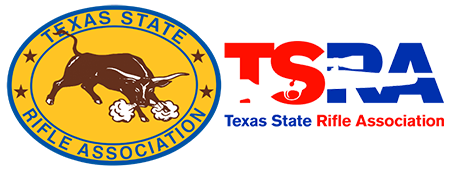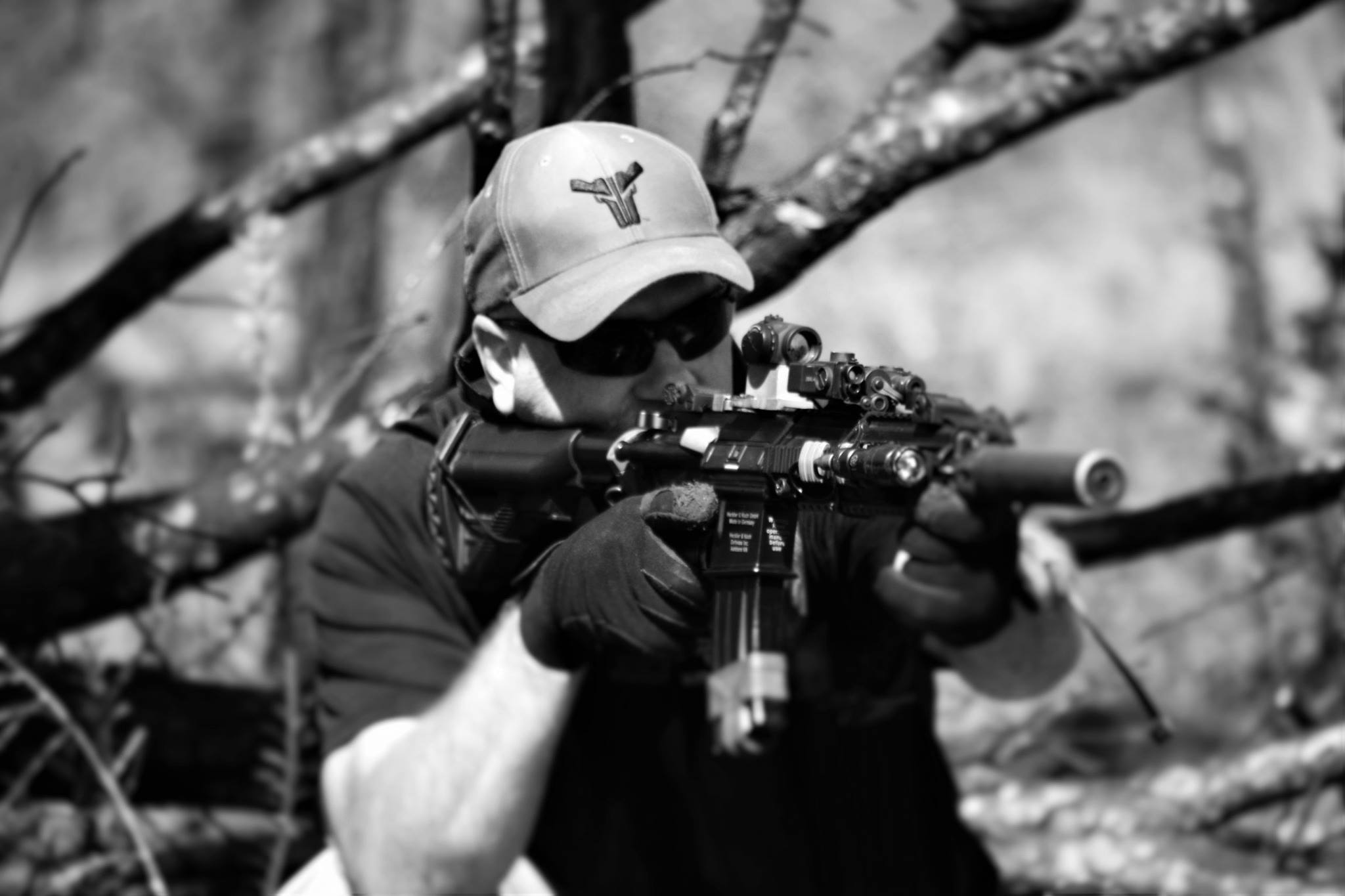Acts on Suppressors Filed in House and Senate
The beginning of the 2010 film Inception follows Cobb (Leonardo DiCaprio) as he skulks around a mysterious room. He opens pocket doors and effortlessly breaks into a safe. He pushes a gun with a suppressor across a glass table. The audience hears the smooth motion of the sliding weapon against the glass. You can almost feel the weight of the firearm due to the sound effects.
Seconds later, Cobb shoots Arthur (Joseph Gordon-Levitt). However, due to the combination of the suppressor and the Hans Zimmer soundtrack, we see the shot get fired. But we barely hear it.
Scenes like this from Inception have led to a misconception as to how a suppressor really works. This has led to a lot of work to purchase an accessory with medical and communication-based benefits.
Current Law:
Suppressors are legal in Texas and several other states. But in order to purchase one, you cannot simply make your purchase and go home with the suppressor in the same day. Under the ATF, a suppressor is designated as a Class 3 Firearm. This means they are regulated under the National Firearms Act (NFA). This also means they require a lengthy process to secure.
In Texas, if you want to purchase a suppressor, you must meet these requirements:
Seconds later, Cobb shoots Arthur (Joseph Gordon-Levitt). However, due to the combination of the suppressor and the Hans Zimmer soundtrack, we see the shot get fired. But we barely hear it.
Scenes like this from Inception have led to a misconception as to how a suppressor really works. This has led to a lot of work to purchase an accessory with medical and communication-based benefits.
Current Law:
Suppressors are legal in Texas and several other states. But in order to purchase one, you cannot simply make your purchase and go home with the suppressor in the same day. Under the ATF, a suppressor is designated as a Class 3 Firearm. This means they are regulated under the National Firearms Act (NFA). This also means they require a lengthy process to secure.
In Texas, if you want to purchase a suppressor, you must meet these requirements:
- You must be a resident of the United States and a resident of the State of Texas
- You must be 21 years of age or older
- You must be legally able to possess a firearm
- You must pass an ATF background check
- You must pay a fee of $200 to the ATF for each suppressor that you purchase
The first step to purchase a suppressor in Texas is to find an authorized dealer. Companies such as TSRA Business Member, Crosshairs Texas, are authorized dealers. They carry most of the suppressors currently on the market. After deciding which suppressor you want to buy, a form is filled out that is submitted to the ATF. You cannot take possession of the suppressor until the paperwork is finished. The process can take several months.
There have been efforts to amend these procedures. House Bill 957 (Rep. Tom Oliverson and Sen. Drew Springer) was passed 2021 during the 87th Legislative Session in Texas. TSRA supported passage of this bill, commonly called the Texas Suppressor Freedom Act. This bill aimed to allow suppressors made in Texas to be legally owned without a federal tax stamp. This was only allowed if they remained within the state’s borders.
As signed into law by Governor Abbott, Texas residents could (and did) request the Texas Attorney General obtain a court order. This order was to prevent ATF from enforcing federal rules and regulations on suppressors within the Lone Star State. Unfortunately, a federal district court and the U.S. Court of Appeals for the Fifth Circuit both dismissed the lawsuit on technical grounds. This has the 2021 Texas Suppressor Freedom Act in legal limbo now.
What’s Next:
U.S. Senator Mike Lee (R-Utah) introduced the Silencers Helping Us Save Hearing (SHUSH) Act on January 30, 2025. If passed, this bill would allow suppressors to be treated the same as any other firearm accessory.
“Law-abiding Americans shouldn’t have to endure months of red tape and pay an additional tax just to access a safety accessory,” said Congressman Cloud in a press release.
SHUSH would include the removal of several federal regulations. This could go as far as to refund individuals who paid a transfer tax for the accessory in the two years prior to the bill’s passage. The bill would get rid of other fees and requirements to those who wish to purchase a suppressor.
More work is being done across the board to help with the suppressors and the efforts in getting them. The Hearing Protection Act has been added to the 119th Congress in the House and the Senate. U.S. Representative Ben Cline (R-VA-06) and U.S. Senator Mike Crapo (R-ID) have reintroduced HR 404/S 364. “The Hearing Protection Act would remove suppressors from regulation under the National Firearms Act (NFA), replacing the onerous federal transfer process with a simple background check, similar to purchasing a firearm. The bill would also reduce the cost of purchasing a suppressor by removing the required $200 tax.” (NRA-ILA).
Another measure addressing certain NFA items has been introduced in the Texas Legislature. House Bill 259, filed by Rep. Richard Hayes, removes short-barreled firearms from the list of prohibited weapons in Texas. While these guns would remain NFA-regulated, this bill eliminates an unnecessary state prohibition and penalty. It will be something federal lawmakers can point to if a serious debate about rolling back or repealing some or all of the NFA becomes a reality in Congress.
We at TSRA will remain informed on these potential changes and will keep our members informed. We are thankful to Rep. Oliverson, Sen. Springer, Rep. Richard Hayes, Rep. Cline, Sen. Crapo, and all who are working to protect the rights of law-abiding citizens. To contribute to the TSRA PAC, please visit our website.
Story by Marissa Brinkman (sportsman@tsra.com)
February 10, 2025
As signed into law by Governor Abbott, Texas residents could (and did) request the Texas Attorney General obtain a court order. This order was to prevent ATF from enforcing federal rules and regulations on suppressors within the Lone Star State. Unfortunately, a federal district court and the U.S. Court of Appeals for the Fifth Circuit both dismissed the lawsuit on technical grounds. This has the 2021 Texas Suppressor Freedom Act in legal limbo now.
What’s Next:
U.S. Senator Mike Lee (R-Utah) introduced the Silencers Helping Us Save Hearing (SHUSH) Act on January 30, 2025. If passed, this bill would allow suppressors to be treated the same as any other firearm accessory.
“Law-abiding Americans shouldn’t have to endure months of red tape and pay an additional tax just to access a safety accessory,” said Congressman Cloud in a press release.
SHUSH would include the removal of several federal regulations. This could go as far as to refund individuals who paid a transfer tax for the accessory in the two years prior to the bill’s passage. The bill would get rid of other fees and requirements to those who wish to purchase a suppressor.
More work is being done across the board to help with the suppressors and the efforts in getting them. The Hearing Protection Act has been added to the 119th Congress in the House and the Senate. U.S. Representative Ben Cline (R-VA-06) and U.S. Senator Mike Crapo (R-ID) have reintroduced HR 404/S 364. “The Hearing Protection Act would remove suppressors from regulation under the National Firearms Act (NFA), replacing the onerous federal transfer process with a simple background check, similar to purchasing a firearm. The bill would also reduce the cost of purchasing a suppressor by removing the required $200 tax.” (NRA-ILA).
Another measure addressing certain NFA items has been introduced in the Texas Legislature. House Bill 259, filed by Rep. Richard Hayes, removes short-barreled firearms from the list of prohibited weapons in Texas. While these guns would remain NFA-regulated, this bill eliminates an unnecessary state prohibition and penalty. It will be something federal lawmakers can point to if a serious debate about rolling back or repealing some or all of the NFA becomes a reality in Congress.
We at TSRA will remain informed on these potential changes and will keep our members informed. We are thankful to Rep. Oliverson, Sen. Springer, Rep. Richard Hayes, Rep. Cline, Sen. Crapo, and all who are working to protect the rights of law-abiding citizens. To contribute to the TSRA PAC, please visit our website.
Story by Marissa Brinkman (sportsman@tsra.com)
February 10, 2025

